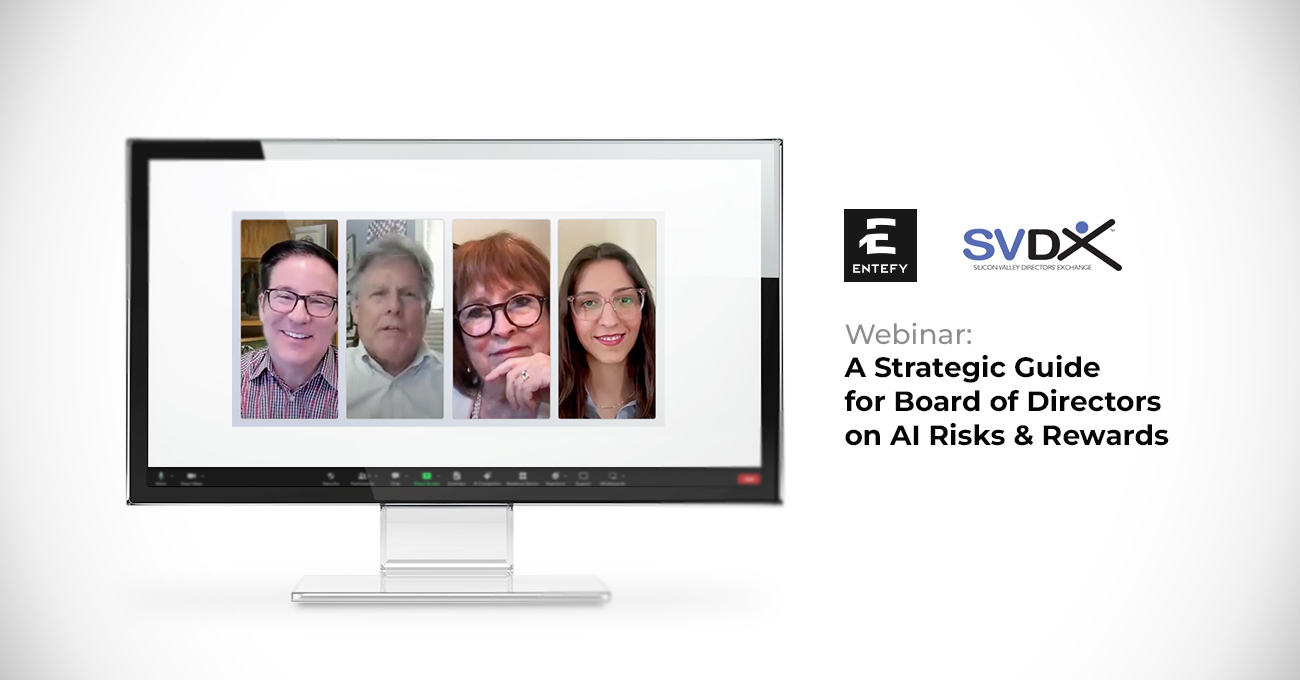In a recent SVDX (Silicon Valley Director’s Exchange) webinar, Entefy co-founder, Brienne Ghafourifar, joined a panel of experts to discuss how corporate boards can effectively manage the adoption and implementation of artificial intelligence. As AI transformation continues to capture the attention of organizations globally, boards of directors need to consider taking on a more active role to ensure AI is not only strategically aligned with business goals, but also governed through a clear-eyed assessment of risks and long-term impact.
The discussion was moderated by Daniel Siciliano, Chaiman of Federal Home Loan Bank of San Francisco and Fellow at Stanford Law School (CodeX). In this webinar, in addition to Brienne, the panel of experts included Peter Cohan and Barbara Nelson. Peter serves as an Associate Professor of Management Practice at Babson College and a Senior Contributor to Forbes. Barbara is the Chair of Oneview Healthcare in Dublin, Ireland, a board member at Omniscient Neurotechnology in Sydney, Australia, and a board member at Backblaze in the San Francisco Bay Area.
The webinar began with a strategic perspective on the various ways boards can ensure AI project success at their organization. The panel’s guidance focused on linking AI initiatives with broader organizational objectives rather than isolating them purely to IT. Risk management emerged as a recurring subject in the conversation. The panelists emphasized the significance of establishing strong oversight procedures that enable directors to evaluate known and unknown risks, such as algorithmic accountability, data integrity, and model bias. See Entefy’s previous blog outlining the impact of machine intelligence when implemented without proper oversight, and the principles organizations must adopt to ensure responsible development and deployment of AI systems.
All panelists agreed that boards of directors need to be sufficiently knowledgeable about modern AI systems to ask the right questions and challenge assumptions. The need for AI literacy (and digital literacy more broadly), however, should not be limited to the boardroom. The panelists encouraged workforce-wide upskilling programs, as organizations grow and create competitive differentiation using advanced AI and automation.
For more information on machine intelligence and how it can future proof your organization, be sure to read our previous blogs including the impact of AI on businesses, the three phases of the enterprise AI journey, and the 18 essential skills needed to successfully launch your AI applications.
